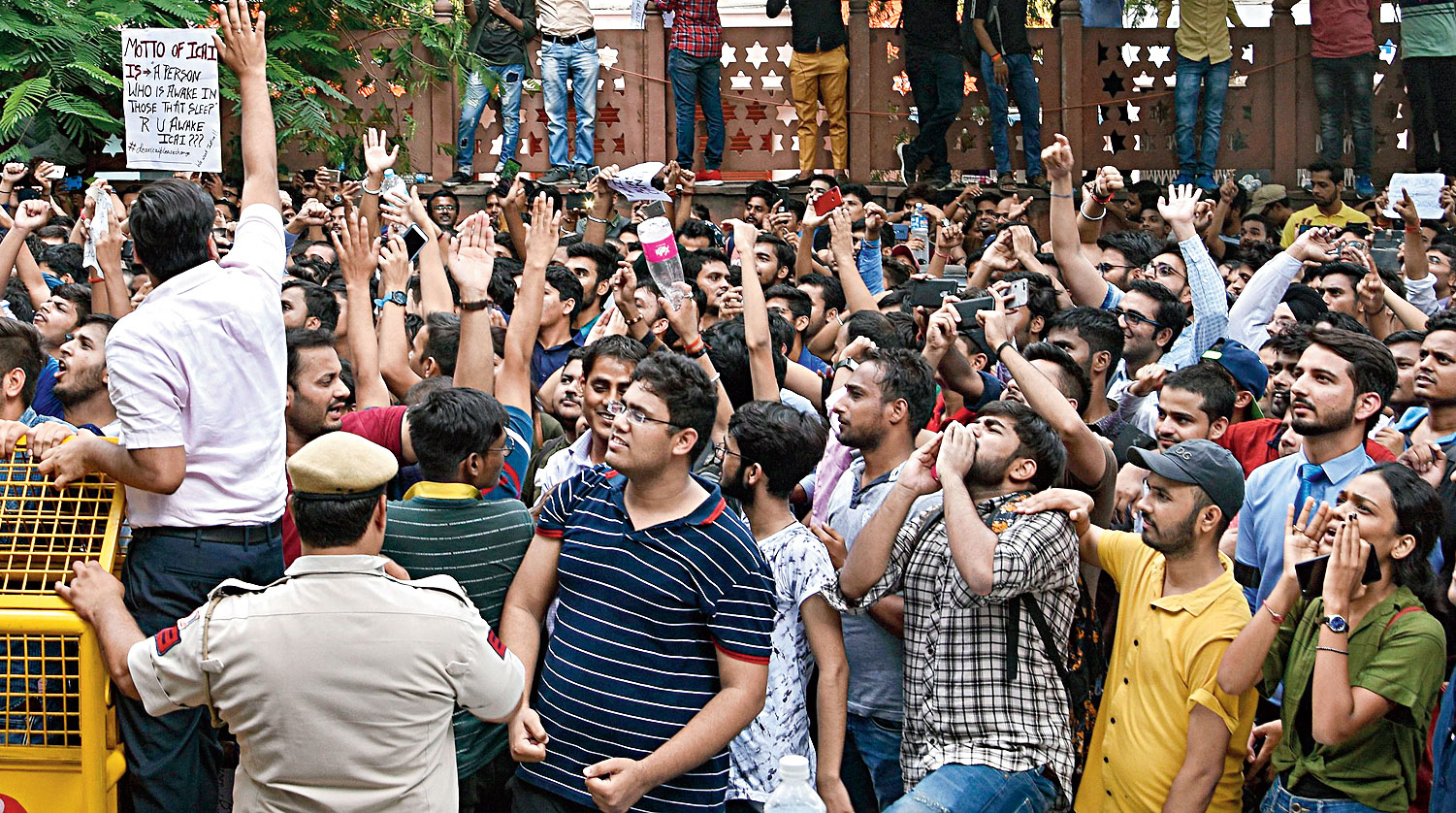Last week, outraged chartered accountancy (CA) students across India took to the streets. The issue was the faulty evaluation of answer sheets. The epicentre of the protest was the headquarters of the Institute of Chartered Accountants (ICAI) in New Delhi. Teachers flew down to Delhi from Mumbai, Rajasthan, Calcutta, Indore and many other places to support the students; there were also regional protests across 100 centres. Private tutors, faculty at the ICAI regional centres, qualified CAs and some ICAI council members also supported the movement. The main demand, according to Ashish Tankha of St. Xavier’s College, Calcutta, was and remains — a transparent system of examination and re-evaluation of answer sheets.
Says Sanjana Popat of Calcutta’s Bhawanipore Educational Society College who is a CA finalist and in her last month of articleship, “There have been instances when examiners of the institute have made glaring errors. We are merely fighting for the right to recheck our answer sheets.” A lot of the protest spilled onto social media. The hashtag #dearicaipleasechange started to trend on Twitter. There was so much noise that Congress leader Rahul Gandhi also tweeted in support.
What happened is this — last year, there were several instances of examiners not marking answer sheets properly. Going by information on the ICAI site, the following are eligible to be empanelled as examiners for CA examinations — “members of the Institute and other professionals inclu-ding academicians of reputed educational institutions, tax and legal practitioners, etc., having a flair for academic activities...”
To avoid last year’s problems, the ICAI introduced objective-type multiple choice questions (MCQs). “These MCQs are checked on OMR sheets [optical mark recognition sheets now used in most common entrance tests],” says Tankha. The ICAI conducts examinations twice a year — May and November. Results for the May exams were announced in August, following which many students raised RTIs to access answer sheets. Says Popat, “An answer book surfaced wherein a student had failed because the examiner had not checked the MCQs properly. He was awarded four marks when he should have been awarded 14 and that too in MCQs.” Tankha chips in, “The prevailing system not only tampers with the future of the students but also pulls down the morale. It also means five to six years of hard work going to waste.”
Abhishek Bajaj, who is a CA and co-founder of e-learning portal Zeroinfy, says, “After the ICAI released suggested answers to the May 2019 exam and students compared their answers, many discrepancies came to light. They found that some of the correct answers were not awarded any marks.”
M any of the students YOU spoke to in this connection claim that this is a long persisting problem with the CA exams. But if that is so, how come it was never escalated to this degree? Says Popat, “There would have been protests last year, but the ICAI assured us it would make changes to the examination system. It even constituted a committee.” Adds CA aspirant Jai Mehra, “In the past there were no objective questions. Though irregularities in the subjective questions persisted, since an examiner has his own decision while checking, the marks awarded were quite subjective.”
What students are now demanding is an amendment to Regulation 39(4) of the Chartered Accountants Act, 1949, which allows for verification of whether a candidate’s answers in any particular paper or papers have been examined and marked — not for the re-examination of the answers. “Students want the option of re-evaluation of answer sheets. They also want the derelict evaluators to be penalised,” says Bajaj.
The students ended their protest after the ICAI constituted a committee to look into their demands, and once again a five-member independent high-level committee was formed to look into the processes and regulations.
Says Mehra, “We know that humans are bound to make mistakes but the fact that a victim loses six months because of someone else is just not acceptable.”










